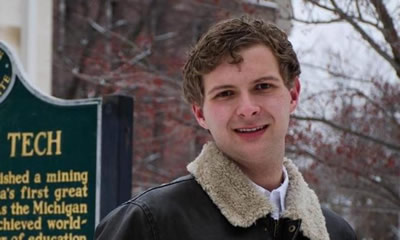
This story is the second in a four part look at ‘Robots and Michigan.’ Check back next week, when we’ll bring you part three.
Jacob Staniszewski is always looking for trouble.
I strongly believe that within the next 20 to 30 years, everything that can be automated, will be,
Staniszewski says.
Armed with an electrical engineering degree from Michigan Tech, he’s signed on to his first post-college gig with FANUC (FAN-uck) – the juggernaut Japanese company behind most of the industrial robots on American assembly lines today. Now it’s Staniszewski’s duty to stir up trouble with the factory-working robots of the future.
A born-and-raised Michigander, Staniszewski’s one of a growing number in the Great Lakes State looking towards a future in industrial robotics.
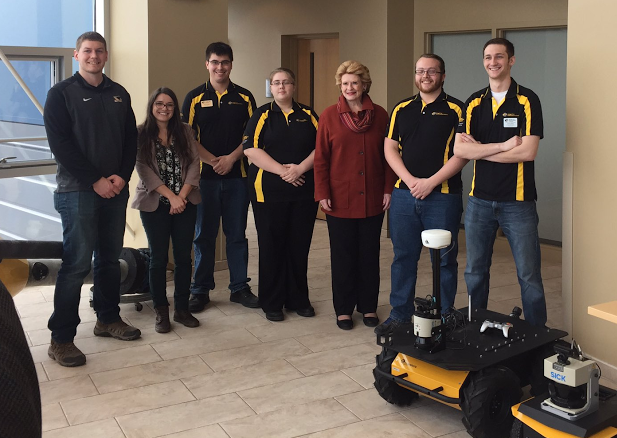
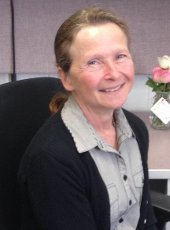
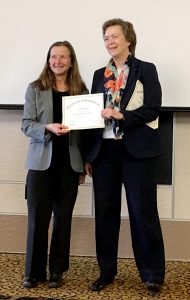
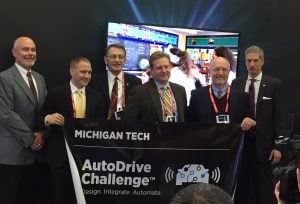 It has definitely not been a quiet week in Houghton. Some pretty exciting news in the ECE Department was made public, and I will share that with you shortly below. There was also some bittersweet news for the entire university, and I think it best if I lead with that. This past Wednesday, two days ago, our university president Glenn Mroz announced in an e-mail to the campus community that he was stepping down as president and returning to the ranks of the faculty, effective June 30, 2018. That date is over a year away, so there is plenty of time for an orderly transition in the administration, and also plenty of time for reflections and best wishes which I am certain will be ample as the date approaches. President Mroz has worked tirelessly on behalf of Michigan Tech and is much loved by the university community. The institution has made some important strides forward under his leadership. I will leave it at that (for now), and just add that we have an interesting year ahead of us.
It has definitely not been a quiet week in Houghton. Some pretty exciting news in the ECE Department was made public, and I will share that with you shortly below. There was also some bittersweet news for the entire university, and I think it best if I lead with that. This past Wednesday, two days ago, our university president Glenn Mroz announced in an e-mail to the campus community that he was stepping down as president and returning to the ranks of the faculty, effective June 30, 2018. That date is over a year away, so there is plenty of time for an orderly transition in the administration, and also plenty of time for reflections and best wishes which I am certain will be ample as the date approaches. President Mroz has worked tirelessly on behalf of Michigan Tech and is much loved by the university community. The institution has made some important strides forward under his leadership. I will leave it at that (for now), and just add that we have an interesting year ahead of us.

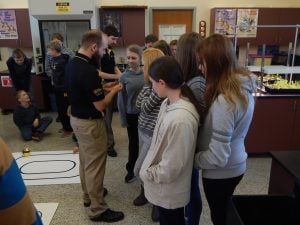 Michigan Technological University’s
Michigan Technological University’s 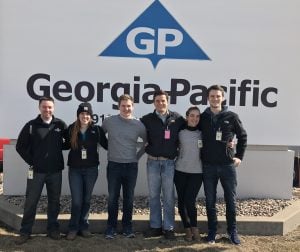
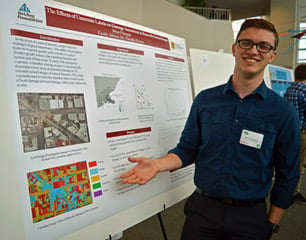 Brian Flanagan, a computer engineering major, was among the winners of the
Brian Flanagan, a computer engineering major, was among the winners of the  The Enterprise Governing Board and the School of Business Scholarship Committee has recently selected Olivia Burek to receive the
The Enterprise Governing Board and the School of Business Scholarship Committee has recently selected Olivia Burek to receive the 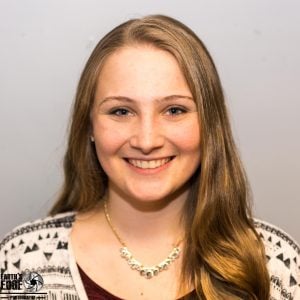 Natalie McGrath will be spending her summer in Narva, Estonia this year to further her studies in Russian language and culture.
Natalie McGrath will be spending her summer in Narva, Estonia this year to further her studies in Russian language and culture.